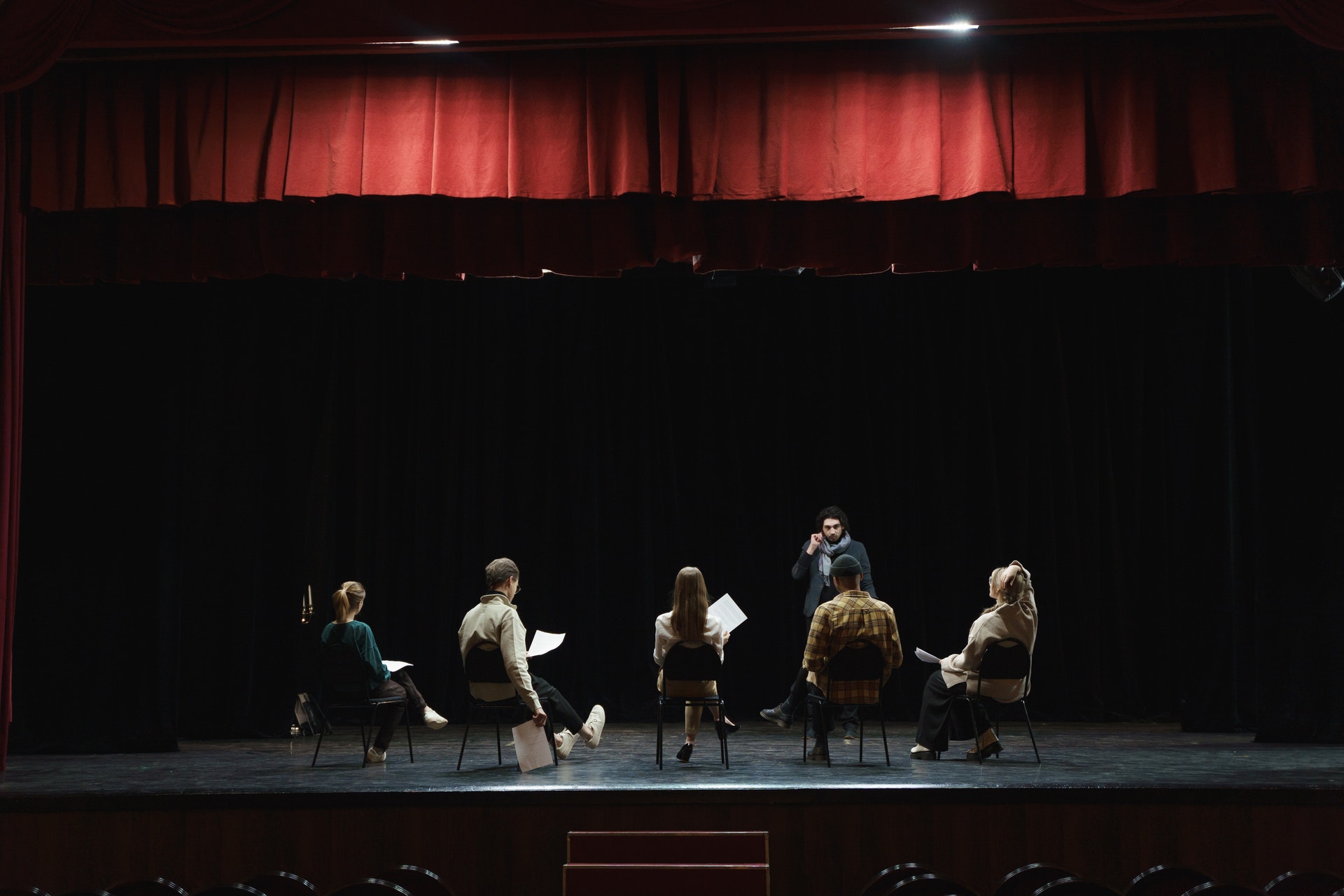
As vaccines are distributed and our country moves back towards a sense of normalcy, many more extracurricular opportunities will begin to be available, presenting families with several options to help their students grow. This article will make the affirmative case for theatre programs, and why they should be at the top of your list! (Also, this spelling of theatre means the art form, whereas theater means a physical stage… in case you were wondering.)
As a theatre major, former improv performer, and a member of the local Sacramento theatre community for 4 years now, I can assure you that the skills I learned through this art have extended far beyond the stage. Theatre not only grants participants a chance to express themselves creatively in front of others, but to train many important skills that will no doubt help students later in life.
Preparation
First, there’s the quintessential question I’ve gotten at every single post-show Q&A: “How do you memorize all your lines?”. While there are many approaches to this, including endlessly practicing with someone else, writing down monologues, recording yourself speaking them, and even recording your partners line to simulate a real performance, the foundation of all these strategies is simple: preparation.
No matter your method, memorizing lines requires thorough preparation, which means studying your lines at home even after rehearsal. This is crucial because by memorizing your lines thoroughly, you allow yourself to focus on being present and in the moment with your partner, making for a much more fun and engaging performance. I think that’s symbolic of preparation as a skill in life as well: when you’re prepared for a task or test, you allow yourself to tackle that test with confidence and focus, rather than worry.
Furthermore, preparation is crucial because it allows you to be punctual, which is non-negotiable in theatre and often in life. The saying in theatre goes: “If you’re not early, you’re late!” This once again encourages preparation since you’ll learn to be prepared well ahead of rehearsal to ensure you’re there early enough.
Cooperation & Communication
If asked to define theatre, I would characterize it as cooperative storytelling, where the director acts as a guide and facilitates the collaborative vision by everyone involved. As you may imagine, this requires anyone participating to be able to cooperate and communicate effectively.
It’s important to look at communication in two parts: speaking and listening. Many people tend to focus on the first part—being able to explain your vision, reasoning, or ideas to someone else in a way that they understand; however, the more important of the two is undoubtedly listening.
In theatre, being a good listener is valuable. It allows you to be open to feedback, criticism, and compliments for that matter, and more importantly, it allows you to hear the story your partner is telling. As an actor in college I had the habit of reading a scene, and planning it all out in my head down to the very last detail. This type of preparation on its own isn’t necessarily a bad thing, but it became my downfall because in having so thoroughly planned, I wasn’t listening to my partner, and hearing what they were saying.
Realizing this really helped elevate me to a new level of acting, and more importantly, it taught me to be a more active listener in life, allowing me to be a better communicator in my career and my personal life.
Most importantly...
Theatre is an absolute blast!
Some of my favorite memories I’ve had have been the time I’ve spent with the many friends I’ve made through my journey in theatre. After lockdown is officially lifted, I know the idea of an activity that puts you in community with others in a collaborative process will not only be a wonderful learning opportunity, but a breath of fresh air after being away from your friends and loved ones for so long.
Theatre is a wonderful way to create new friendships through an art that allows a student to express themselves and tackle their fear of public speaking, and I cannot recommend it enough!